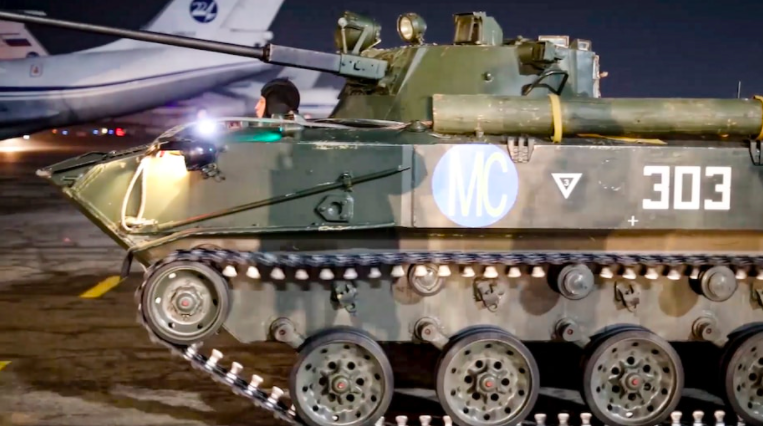Protests Erupt in Kazakhstan
On January 2, protests erupted across Kazakhstan as fuel prices spiked after a price cap was removed, but the riots expanded to encompass a broader discontent with social and political concerns. Protestors took to the streets to complain about the inequality, poverty, and corruption within the country. In addition, grievances were made against current leader President Tokayev and former President Nazarbayev, who ruled the country for over three decades after it obtained its independence from the Soviet Union.
The protesters stated that the government was working to oppress the citizens of Kazakhstan. After years of authoritarian rule, citizens are demanding change. President Tokayev, in an attempt to appease the protesters, removed former President Nazarbayev from his position of chairman of the security council. The sudden removal and silence from Nazarbayev led to the belief that there was tension between the upper elite of Kazakhstan. After weeks of silence, Nazarbayev released a statement stating that there was no infighting between the elites of Kazakhstan, that he was still in the country, and that his successor Tokayev had his full support.
The reasons behind the unrest in Kazakhstan were overshadowed when President Tokayev called on President Putin to send Russian troops to enforce peace. Putin quickly responded by sending over 2,000 troops to the country. Once the troops arrived, protests were quickly quelled. Russia’s presence in Kazakhstan is unsurprising after the arrival of troops on the Ukrainian border and Russia’s desire to regain control of previous parts of the Soviet Union. Kazakhstan is a former part of the Soviet Union, and since it gained its independence, the country has been a member of CSTO, the Collective Security Treaty Organization, which includes Russia, Belarus, Armenia, Kazakhstan, Kyrgyzstan, and Tajikistan.
The unrest in Kazakhstan represents the ever-growing threat that authoritarianism has on democracy. As the United States and NATO face the growing challenge of Russia’s troops on the Ukrainian border, Kazakhstan serves as an example of what can happen in countries under the control of unstable and authoritarian governments. The recent events in Kazakhstan should serve as an incentive for countries that value democracy to preserve it.

A member of The Advocate since 7th grade, Elizabeth enjoys writing news, school and local, and arts and culture articles. She can't wait to help writers...







